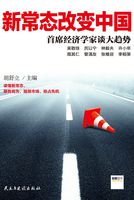The death of Thomas Stevenson will mean not very much to the general reader. His service to mankind took on forms of which the public knows little and understands less. He came seldom to London, and then only as a task, remaining always a stranger and a convinced provincial; putting up for years at the same hotel where his father had gone before him; faithful for long to the same restaurant, the same church, and the same theatre, chosen simply for propinquity; steadfastly refusing to dine out. He had a circle of his own, indeed, at home; few men were more beloved in Edinburgh, where he breathed an air that pleased him; and wherever he went, in railway carriages or hotel smoking-rooms, his strange, humorous vein of talk, and his transparent honesty, raised him up friends and admirers. But to the general public and the world of London, except about the parliamentary committee-rooms, he remained unknown. All the time, his lights were in every part of the world, guiding the mariner; his firm were consulting engineers to the Indian, the New Zealand, and the Japanese Lighthouse Boards, so that Edinburgh was a world centre for that branch of applied science; in Germany, he had been called "the Nestor of lighthouse illumination"; even in France, where his claims were long denied, he was at last, on the occasion of the late Exposition, recognised and medalled. And to show by one instance the inverted nature of his reputation, comparatively small at home, yet filling the world, a friend of mine was this winter on a visit to the Spanish main, and was asked by a Peruvian if he "knew Mr. Stevenson the author, because his works were much esteemed in Peru?" My friend supposed the reference was to the writer of tales; but the Peruvian had never heard of DR. JEKYLL; what he had in his eye, what was esteemed in Peru, where the volumes of the engineer.
Thomas Stevenson was born at Edinburgh in the year 1818, the grandson of Thomas Smith, first engineer to the Board of Northern Lights, son of Robert Stevenson, brother of Alan and David; so that his nephew, David Alan Stevenson, joined with him at the time of his death in the engineership, is the sixth of the family who has held, successively or conjointly, that office. The Bell Rock, his father's great triumph, was finished before he was born; but he served under his brother Alan in the building of Skerryvore, the noblest of all extant deep-sea lights; and, in conjunction with his brother David, he added two - the Chickens and Dhu Heartach - to that small number of man's extreme outposts in the ocean. Of shore lights, the two brothers last named erected no fewer than twenty-seven; of beacons, (4) about twenty-five. Many harbours were successfully carried out: one, the harbour of Wick, the chief disaster of my father's life, was a failure; the sea proved too strong for man's arts; and after expedients hitherto unthought of, and on a scale hyper-cyclopean, the work must be deserted, and now stands a ruin in that bleak, God-forsaken bay, ten miles from John-o'-Groat's. In the improvement of rivers the brothers were likewise in a large way of practice over both England and Scotland, nor had any British engineer anything approaching their experience.
It was about this nucleus of his professional labours that all my father's scientific inquiries and inventions centred; these proceeded from, and acted back upon, his daily business. Thus it was as a harbour engineer that he became interested in the propagation and reduction of waves; a difficult subject in regard to which he has left behind him much suggestive matter and some valuable approximate results. Storms were his sworn adversaries, and it was through the study of storms that he approached that of meteorology at large. Many who knew him not otherwise, knew -perhaps have in their gardens - his louvre-boarded screen for instruments. But the great achievement of his life was, of course, in optics as applied to lighthouse illumination. Fresnel had done much; Fresnel had settled the fixed light apparatus on a principle that still seems unimprovable; and when Thomas Stevenson stepped in and brought to a comparable perfection the revolving light, a not unnatural jealousy and much painful controversy rose in France. It had its hour; and, as I have told already, even in France it has blown by. Had it not, it would have mattered the less, since all through his life my father continued to justify his claim by fresh advances. New apparatus for lights in new situations was continually being designed with the same unwearied search after perfection, the same nice ingenuity of means; and though the holophotal revolving light perhaps still remains his most elegant contrivance, it is difficult to give it the palm over the much later condensing system, with its thousand possible modifications.
The number and the value of these improvements entitle their author to the name of one of mankind's benefactors. In all parts of the world a safer landfall awaits the mariner. Two things must be said: and, first, that Thomas Stevenson was no mathematician.















